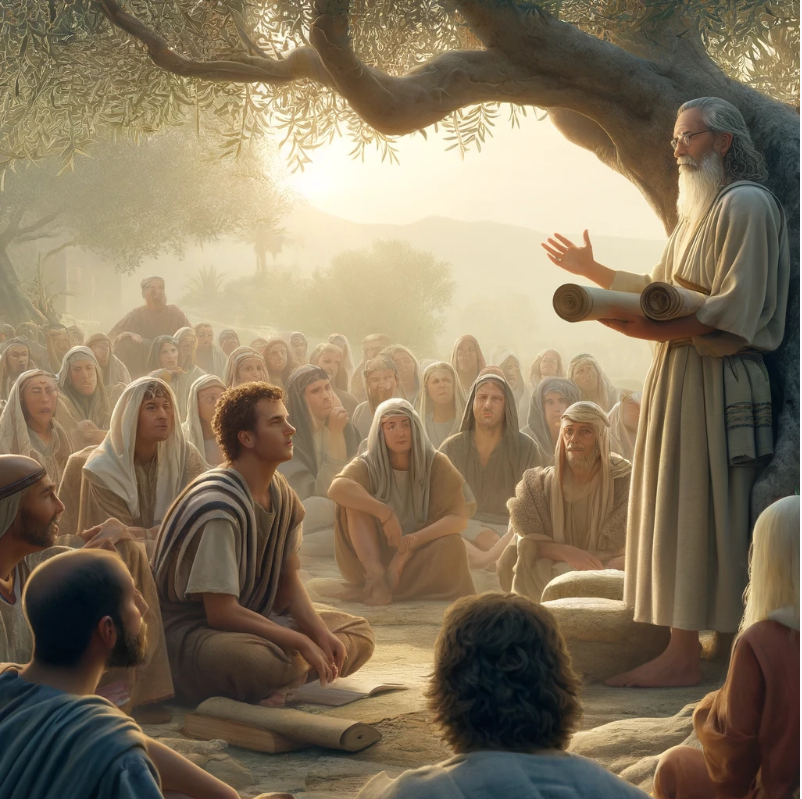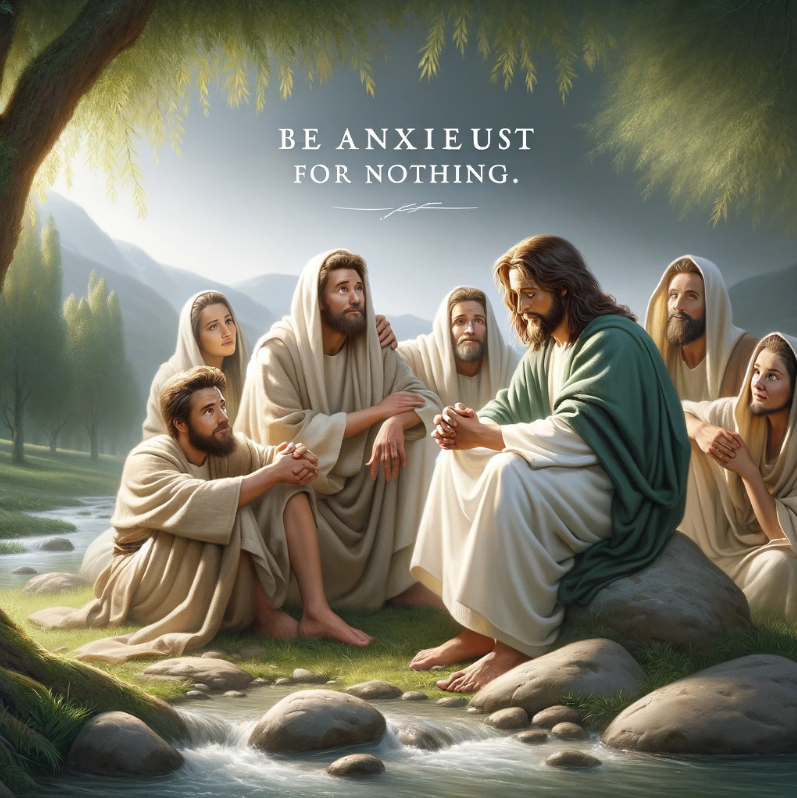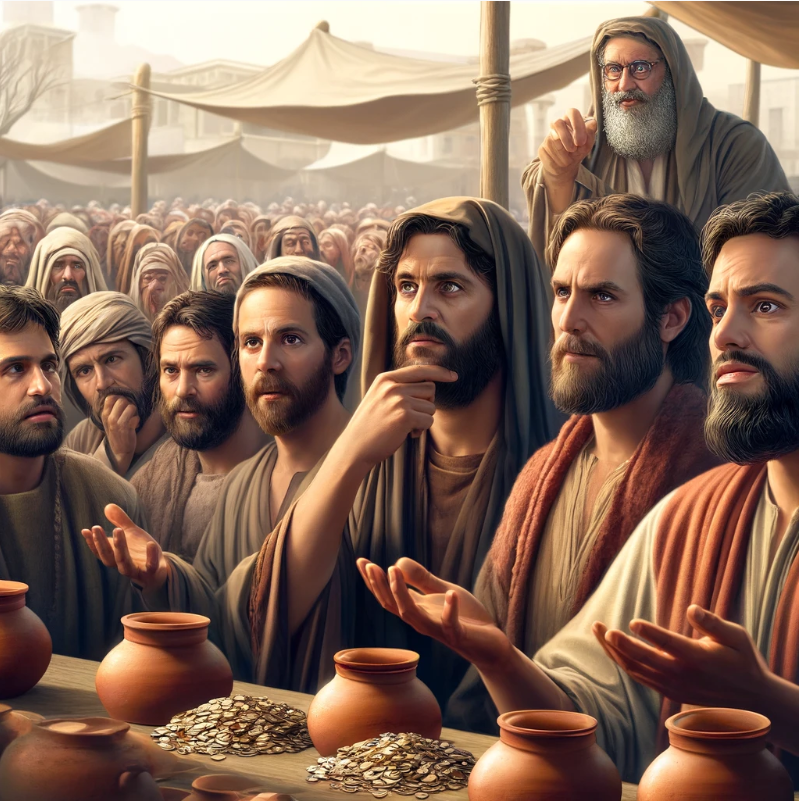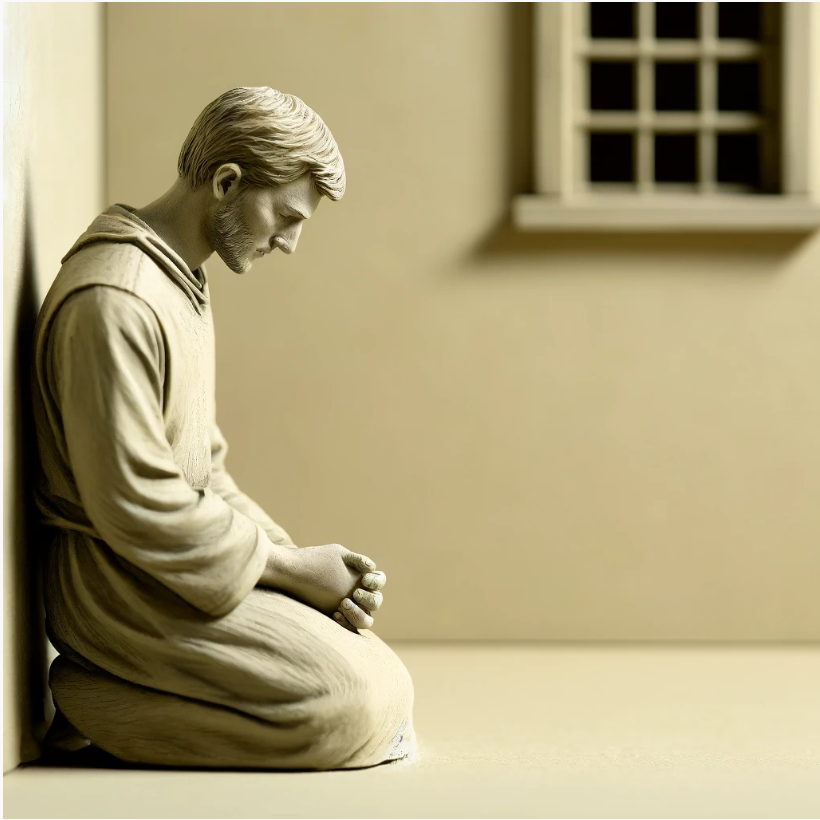In the heart of evangelical Christianity, theology and ethics serve as pillars that inform believers’ understanding of God, human nature, and moral duties. This guide is crafted for evangelical believers with strong faith, providing a clear and easily understandable exploration of these foundational aspects. The focus is to elucidate broad theological and ethical concepts, steering clear of specific scriptural entries and instead emphasizing principles that inspire and guide daily Christian living.

Where in the Bible Are the Fruits of the Spirit Listed?
The Fruits of the Spirit are listed in the Bible in Galatians 5:22-23. Galatians 5:22-23 But the fruit of the Spirit…

Where in the Bible Are the Peacemakers Called Blessed?
The peacemakers are called blessed in Matthew 5:9, as part of the Beatitudes in the Sermon on the Mount. It…

Where Does the Bible Discuss the Concept of Free Will?
The Bible discusses the concept of free will in several passages. Notably: Genesis 2:16-17 Deuteronomy 30:19 Joshua 24:15 Galatians 5:13…

Where in the Bible Is the Five-Fold Ministry Discussed?
The Five-Fold Ministry is discussed in Ephesians 4:11-13. Ephesians 4:11-13 And he gave some, apostles; and some, prophets; and some,…

Where in the Bible Does It Say «Love Your Enemies»?
The phrase "Love your enemies" is found in the Bible in Matthew 5:44 and Luke 6:27. Matthew 5:44 But I…

Where in the Bible Does It Say «Love Never Fails»?
The phrase "Love never fails" is found in the Bible in 1 Corinthians 13:8. 1 Corinthians 13:8 Charity never faileth:…

Where in the Bible Is Divorce Discussed?
Divorce is discussed in several places in the Bible: Deuteronomy 24:1-4: This passage provides instructions on how a man may…

Where in the Bible Is Necromancy Discussed?
Necromancy is discussed in the Bible in Deuteronomy 18:10-12, where it is condemned alongside other practices. It's mentioned as part…

Where in the Bible Does It Say «Love Your Neighbor as Yourself»?
The phrase "Love your neighbor as yourself" is found in the Bible at Leviticus 19:18 and Matthew 22:39. Leviticus 19:18…

Where in the Bible Is Remarriage Discussed?
Remarriage is discussed in several places in the Bible. Notably, it is mentioned in the Gospels in Matthew 19:9, where…

Where in the Bible Does It Say «By His Stripes We Are Healed»?
The phrase "By His stripes we are healed" is found in the Bible in Isaiah 53:5. Isaiah 53:5 But he…

Where in the Bible Is Fornication Discussed?
Fornication is discussed in several places within the Bible. Some of the notable passages include: 1 Corinthians 6:18-20, Galatians 5:19-21,…

Where in the Bible Does It Say «You Are the Light of the World»?
"You are the light of the world" is found in the Bible in Matthew 5:14. Matthew 5:14 Ye are the…

Where in the Bible Are the Nephilim Mentioned?
The Nephilim are mentioned in the Bible in Genesis 6:4 and Numbers 13:33. Genesis 6:4 There were giants in the…

Where in the Bible Is Tithing Discussed?
Tithing is discussed in various parts of the Bible. Notable references include: Genesis 14:20, Leviticus 27:30-32, Deuteronomy 14:22-29, Malachi 3:10,…

Where in the Bible Does It Say «Be Anxious for Nothing»?
The phrase "Be anxious for nothing" is found in the Bible at Philippians 4:6. Philippians 4:6 Do not be anxious…

Where in the Bible Is the Rapture Discussed?
The concept of the Rapture, where believers are taken up to meet Christ in the air, is most explicitly discussed…

Where in the Bible Does It Say «Love Is Patient»?
The phrase "Love is patient" is found in the Bible in 1 Corinthians 13:4. 1 Corinthians 13:4 Charity suffereth long,…

Where in the Bible Does It Talk About Repentance?
The concept of repentance is mentioned several times in the Bible. Here are a few key passages: Old Testament: Ezekiel…

Where in the Bible Does It Say «Honor Your Parents»?
The directive to "honor your parents" is found in Exodus 20:12 and Deuteronomy 5:16 in the Bible. Exodus 20:12 Honor…

Where in the Bible Is Gambling Described as a Sin?
Gambling itself is not directly mentioned in the Bible. However, principles that are often interpreted to address gambling include the…

Where in the Bible Is Obedience Valued Over Sacrifice?
The Bible values obedience over sacrifice specifically in 1 Samuel 15:22. 1 Samuel 15:22 And Samuel said, Hath the Lord as great…

Where in the Bible Does It Say to «Pray Without Ceasing»?
The phrase "pray without ceasing" is found in 1 Thessalonians 5:17. 1 Thessalonians 5:17 Pray without ceasing. 1 Thessalonians 5:17…

Where in the Bible Is the Principle of «Eye for an Eye» Found?
The principle of "eye for an eye" is found in several places in the Bible: Exodus 21:24 Leviticus 24:20 Deuteronomy…
God’s Nature and Human Relationship
Theology starts with the nature of God — a central theme in Christianity that shapes every other theological inquiry. God is depicted as omnipotent, omniscient, and omnipresent, yet He is also personal, loving, and just. This understanding impacts how believers see their relationship with Him and with the world. For example, the doctrine of the Trinity expresses a God who is relational in His very essence, which serves as a model for human relationships.
In response to God’s nature, ethics emerge as reflections of His character. Since God is holy, just, and loving, He desires His followers to embody these attributes. This is not just about adhering to a set of rules but involves forming a character that mirrors God’s through the guidance of the Holy Spirit. Such transformation is seen as the fruit of a genuine relationship with God, grown through prayer, worship, and obedience.
Free Will and Moral Responsibility
The concept of free will is vital in understanding Christian ethics. It holds that God has endowed humans with the ability to choose freely between right and wrong. This gift underscores humanity’s unique position in creation, bearing both the privilege and responsibility of choice. Theological discussions often focus on how divine sovereignty interacts with human freedom, suggesting a complex relationship where God’s preordained plan somehow coexists with our free decisions.
From an ethical standpoint, free will is foundational because it forms the basis for moral responsibility. Believers are called to choose actions that align with God’s desires, reflecting His goodness in the world. Ethical living, therefore, is not just about following divine commands but about actively choosing to do so each day, thus participating in the divine nature through making choices that honor God and promote human flourishing.
Sin, Grace, and Redemption
Sin is a core concept in Christian theology, referring to the human propensity to act contrary to God’s will. This includes not only overt actions but also attitudes and thoughts that fall short of divine standards. The consequence of sin is spiritual separation from God, which necessitates redemption.
Grace and redemption are the theological counterpoints to sin. Grace is God’s unmerited favor towards humanity, offered most profoundly through the sacrifice of Jesus Christ. Redemption, then, is the act by which believers are restored to a right relationship with God. It involves forgiveness of sins and the imputation of Christ’s righteousness to believers, a transformative process that also empowers ethical living. Thus, ethics in Christianity are not about earning God’s favor but responding to His grace with lives that reflect His love and truth.
The Church’s Role in a Fallen World
The church is envisioned as a community of believers who live out their theological and ethical convictions in a visible and practical way. It serves as the body of Christ on earth, tasked with proclaiming the gospel and embodying Christ’s presence through acts of love, mercy, and justice. The ethical life of the church is thus a corporate witness to the transformative power of the gospel.
The church is also a context for mutual accountability and encouragement in ethical living. Believers are called to spur one another on toward love and good deeds, correcting and supporting each other in a spirit of humility and patience. This communal dimension of ethics emphasizes that living rightly is not merely an individual endeavor but a collective pursuit, deeply embedded in the fabric of Christian community life.
This exploration of theology and ethics aims to provide evangelical believers with a framework for understanding and living out their faith. Each concept interweaves to form a comprehensive picture of what it means to live as a follower of Christ, guided by the principles of Scripture and motivated by a deep, enduring faith.
